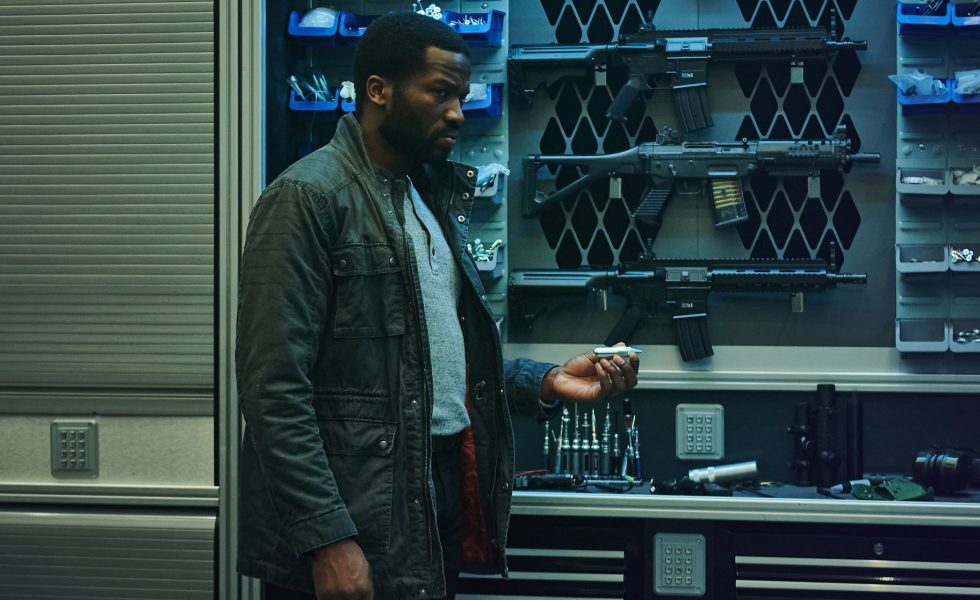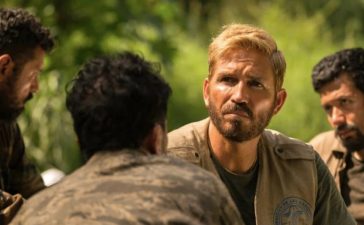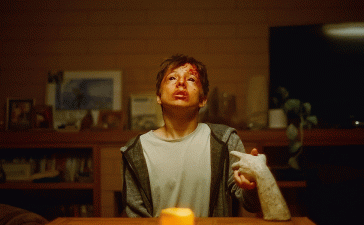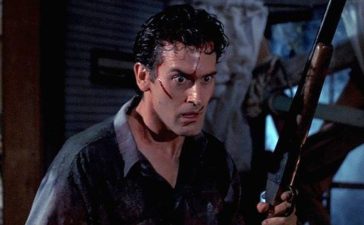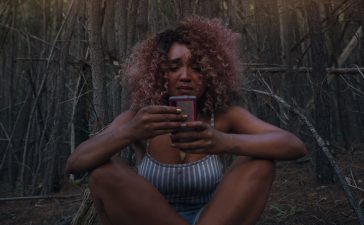Action fans got a huge treat last year when Gangs of London dropped on Stan. Created by The Raid’s Gareth Evans and set in modern-day Britain, the series is a brutal and beautiful action spectacular, charting a savage gang war that erupts when an Irish mob boss is murdered and the hunt is on for his killers.
It’s breathtaking stuff for action junkies, as we might expect from Evans, but he didn’t make the series on his own, recruiting genre filmmakers Xavier Gens (Frontier(s)) and Corin Hardy (The Nun and the aborted reboot of The Crow with Jason Momoa) to his directing team. It’s the latter we had the privilege of talking to on the occasion of Gangs of London’s disc release via Umbrella Entertainment.
How’d you come onboard Gangs of London? What was the appeal of working on that series?
Funnily enough, it did sort of start with The Crow. I was working on my version of The Crow and I had tracked down Gareth. We’d become mutual Instagram friends, mutually liking each other’s love of movies and posts about when we’d just bought a new Blu-Ray. I contacted him to pick his brains about action because I was approaching The Crow and I thought, “I really need to pull all the stops out,” to do something that can compete with the kind of action that we see now with movies like The Raid and John Wick and superhero movies.
So, we got together and while I was chatting to him about that he also said he was putting together a show called Gangs of London and would I be up for directing an episode, which was nicely flattering. I didn’t think I could do it back then because I was in the thick of the movie, but that sadly went down. And a few months later he approached me again and I thought, you know, “Go for it.” So, I got involved in Gangs of London mainly because Gareth was involved. That said, I’d been wary of television in terms of wanting to always do features and kind of wondering what my first TV show might be; I’d been developing my own and this was kind of out of my comfort zone. It was sort of grounded action, crime, set in London and contemporary, and those sort of things scared me in a way, because I didn’t have my usual kind of fantastical horror or supernatural genre to hide behind with this.
I read the scripts and I got asked to do one episode and then it became three episodes, and then it became the final episode as well. I ended up seeing the whole run of the show from the start to the end, which was basically about a year and a bit. It was like making a series of feature films. It was really an enlightening experience in many ways. It was delving deep into a very grounded, character-based show, which also had this fantastical, slightly heightened genre universe around it. We were able to incorporate genres like Western or horror or war within a crime show.
I am a big fan of that sort of ‘70s golden era of crime cinema: William Friedkin movies, The French Connection, and the Godfather movies. Also, Korean thrillers like Old Boy and Memories of Murder. And John Woo movies like Hard Boiled and The Killer. And Tarantino. It was a chance to see if we could pull this type of cinema into a TV show.
It sounds like you got a real on-the-job crash course in action movie auteurship, as it were. What were the big lessons that you learned?
Well, you’re looking for opportunities in the action, both in the design and the conception of them, to do unexpected things and to try and do things that you don’t usually get on TV. In episode four, I was able to do that. From the midpoint of the episode, there was a kind of melting pot of tension building up to what became this alleyway shootout that continued on all the way to the end of the episode when they get back to the family dinner table.
As the director, when you’re reading the script, you want to find that opportunity to make these visceral set paces as immersive and relatable as possible so it can connect to the audience – who are hopefully going through the experience. I drew from the visceral films of David Cronenberg and Paul Verhoeven, so when someone gets wounded you really feel what that’s like. I set it in an alley that was kind of like the alleyway of death, where there’s smoke coming out from the back of the Chinese restaurants, so there was an opportunity for ambiguity and mystery with the laser sights going through the smoke, and if the laser sights can land on you, you’re going to be dead. It was building in tension and then going pretty crazy with action that doesn’t let up so by the end of the episode, you only then get to breathe.
What’s involved in getting from what’s written on the page, which may be fairly scant because of page limits, to the elaborate onscreen ballets of violence that we see when we’re sitting at home on our couches?
First of all, don’t get me wrong: the scripts were incredibly well-written and planned out in nuanced detail and researched. You’re looking for those opportunities for set pieces. Gareth had written the first two episodes that he directed and the fifth one as well, so he was writing for himself, whereas I was picking up on what the script writers mapped out, but then it’s for you to really make it cinematic. It just takes a lot of effort and a lot of ambition to push the barriers and the schedule and the budget. And it’s always a magic.
The process from the creation of a script to when it’s finally complete is a couple of years and a lot of decisions in that time with cast and crew and special effects and editing and visual effects. It wasn’t like a regular TV show where you get brought in for a couple of weeks, prep, direct, and then leave everyone to it. I was on it for a year and a half and like I said, it was like making a couple of feature films back-to- back. I’ve been working on season two for the last year, prepping that to shoot. You plan the action months and months in advance, and break it down, design it and then break it down and pre-visualise it so you get a real map of what you’re going to do, and then shoot it and edit it. What you see in that show? It’s very meticulous.
So, according to IMDB, you actually have an acting role in Gangs of London…
If you haven’t seen it, there’s someone who is threatening one of our characters, who videos them on a phone while they’re asleep. It was a nod to both Sam Raimi and also Dario Argento who famously would play the gloved killer in his giallo movies. I needed a shot where the killer’s hands enter the frame with a knife. It was one of those days where we’d had such a full-on day, we had 10 minutes to get this final shot. So, I just said give me the knife, I’m going to film it on my phone, and I’ll be in the frame.
What was the biggest challenge?
Just getting my head around the script. When you develop or write or direct a movie, generally, you’re looking at a 90 page or a hundred-page script with one story in it. But with Gangs, you’re looking at a 10-hour story which has all these interweaving relationships and alliances and betrayals and family beefs and so to just come in and read what was the first three scripts was quite daunting. I had to literally read them a hundred times and [have] a family tree of all the different characters and who knew who and what. It took a while to just absorb that.
You and Xavier Gens, who also directed episodes, are both horror guys, and Gareth’s no slouch in that department. How did your experiences in that genre inform what you did here?
It was exciting to read the script to see there’s going to be a certain intensity. I remember reading the sixth episode, which I wasn’t directing, and thinking: “I’m glad Xavier’s doing this one.” Because Xavier’s forte is in French Extreme horror, and episode six involves a little bit of that. But I had my fair share. There’s a scene in the abattoir where Asif is trying to locate his heroin, which has been smuggled inside the bodies of cows, and he gathers all the truck drivers together to ask them who took it, and when they don’t speak up, he’s using one of those air pressure cow guns on them. I’m a fan of practical effects and that was an opportunity to sort of go full Deer Hunter. We had a proper air rig on the guy. Doing blood is an art.


